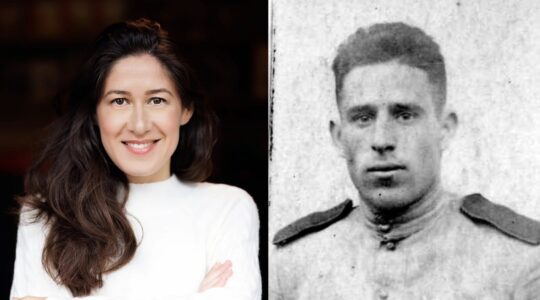“And [Nehemia] said to them, ‘Go, eat delicious foods, drink sweet beverages, and send portions to whoever has nothing prepared, for [Rosh HaShanah] is holy to our Lord. And do not be sad, for the joy of the Lord is your strength’” [Nehemia 8:10].
Is Rosh HaShanah a fundamentally somber day or a festive one? On the one hand, the Bible calls it “Yom T’rua,” usually translated as “the Day of the Shofar Blowing.” The literal meaning of t’rua is a broken staccato sound, described as either a three-fold sigh, a nine-fold wail or a combination of the two [Talmud Rosh HaShanah 33b].
Since Rosh HaShanah is the Jewish New Year, the anniversary of the creation of the world — or more precisely of the creation of the first human being — the t’rua sound expresses an implicit recognition that we live in a world of lamentations, a human predicament in which pain and suffering is real and palpable, where the innocent are killed, or their lives forever upended in events such as the recent hurricanes that have ravaged Texas, Florida and the Caribbean. Their collective sob was a t’rua to God.
But if we were to think of the world on Rosh HaShanah exclusively in terms of a “long day’s journey into a night of death and despair,” then why the additional appellation, “HaYom Harat Olam” (“the day of the birth/conception of the world”)?
No matter how we translate “HaYom Harat Olam,” the very phrase implies all of the optimism of a new beginning. Indeed, it is a declaration that calls to mind all the hope and promise that newborn children bring to the world.
If we regard the world on Rosh HaShanah as a newborn creation, dazzling us with its beauty, freshness and innocence, then we have made significant progress in making the New Year meaningful in our lives. And Rosh HaShanah is, after all, considered a festival of joy that cancels any individual mourning and must be celebrated with special foods and holiday dress.
So how can we reconcile the tragically sad day of the shofar sigh-sob with the joyously optimistic day of the world’s re-creation?
The answer may be found in a second symbol of the shofar, which is also the instrument by which we are asked to coronate God, according to a striking Talmudic passage. The Sages quote God as saying: “Recite verses before Me on Rosh HaShanah concerning kingship, remembrance, and the shofar! Kingship, so that you may coronate Me king over you; remembrances so that your remembrance may rise favorably before Me; And through what medium? The shofar” [Talmud Rosh HaShanah 16a].
How is the shofar, expressing the tragic sigh-sob of a frail human being in an imperfect, incomplete world that often appears to be a vale of tears, also the means by which we coronate God as king?
The answer is that the t’rua’s broken staccato is not the only sound that emerges from the ram’s horn. Indeed, the predominant sound is the tekia, which is a straight, uninterrupted and exultant blast, and it is this tekia of affirmation, not the wailing cry of the t’rua, that is central to Rosh HaShanah.
Indeed, we are required to sound two tekiyot blasts for every single t’rua blast. And the length of the broken sound must be less than that of the straight sound.
Rosh HaShanah is indeed the Jewish New Year, anniversary of the birth of humanity, the creation of the world. From that perspective, Rosh HaShanah is also the “Day of the T’rua,” the day of the sigh-sob, because we find ourselves in a world of darkness as well as light, of chaos as well as order, of evil as well as goodness, a world in which the Divine Presence is often hidden behind clouds of tragedy and iniquity.
However, the Almighty has also created human beings in His image, and has given us the gift of Torah by which we have the possibility and the power to perfect this imperfect world, to bring light into the places of darkness, to perfect the world in the kingship of God and to make His Presence manifest once again throughout the universe.
This is the majestic and exultant tekia sound by which we — humans but a little lower than God and crowned with honor and glory — have the mandate to coronate the Almighty. But we can only accomplish that exalted goal by realizing our potential and — by returning to God, Torah and Israel — perfecting ourselves and the world.
Ultimately, this is what makes Rosh HaShanah a joyous festival. Rosh HaShanah is the first of the Ten Days of Teshuva, and so on Rosh HaShanah we have the ability — and the challenge — to recreate the world. “Today the world was conceived.” Today, the world can become reborn.
Shabbat Shalom.
The New York Jewish Week brings you the stories behind the headlines, keeping you connected to Jewish life in New York. Help sustain the reporting you trust by donating today.




